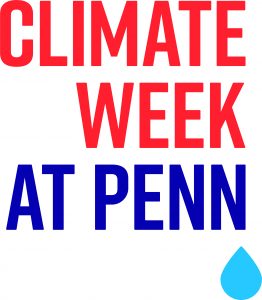Penn Labs Freezer Challenge
The Penn Labs Freezer Challenge is designed to promote best practices in cold storage management. The Freezer Challenge covers all forms of cold storage, including refrigerators, freezers, and cold rooms. Labs participating in the challenge will be asked to submit an online score sheet. The challenge focuses on cleaning out old samples, temperature tuning, and sharing cold storage spaces. A copy of the challenge scorecard can be found here.
Sign-ups starting: January 1st
Challenge completion deadline: April 15th
For more information on this competition and details on how to sign-up, checkout the flyer! You can also learn more about Penn’s Green Labs on their website!
Past Green Events
Sustainability Fair
The Sustainability Fair is a one-day activity fair that aims to educate the Penn community on different resources available to improve sustainability both at work and at home. We invite various campus groups to participate. This past year, we had the following informational tables:
- Food Sustainability: Many people were interested in sustainable events at Penn. When students attended, we focused on what students can do at events: what items are recyclable, how to reduce their own waste.
- Water Sustainability: The Water Taste Challenge was a Big Hit! When the water was cold, only about 25% of people were able to distinguish between tap/bottled/filtered water.
- Power Sustainability: Power down tips were given to students and staff. 35 people signed up to receive Green Strips for their offices/desks. This will reduce ghost and unneeded electricity loads at Penn.
- Green Purchasing: All visitors were given information on Ben’s Attic and how to purchase sustainability at Penn.
- Book Recycling: Visitors were invited to donate old books and textbooks in exchange for a new donated book. The books that remained after the event were saved to be used at the following SEAS Green Team Bookswap. Information on the next Bookswap was given to those who were interested in donating later. If there are any questions please contact us.
- Education: We were recruiting for the VIPER program. VIPER recruits mostly high school age students, but many others were interested.
- Electronics Recycling: EForce was collecting all electronics with a plug to be recycled. We also collect e waste year round in our recycling room.
- University Practices: FRES sustainability was able to answer wide-spread questions about sustainability at SEAS and throughout campus. Water bottles were raffled off.
- Biking: Information about biking on campus and throughout the city was discussed. Bike share programs were highlighted.
Book Swap
Once each semester the Green Team holds a book swap in Levine Lobby. The Penn community is invited to swap old books in exchange for new books at the event. All books left over at the end of the day are donated to a local charity. The event is held in conjunction with the end of the semester to encourage students to swap old textbooks.
Power Down Challenge
The Power Down Challenge is a competition between academic buildings to see who can conserve the most energy in comparison to their monthly average. Steps to decrease energy consumption included using Smart Strips, turning off the lights in unused rooms, taking advantage of natural light, and switching to energy efficient light bulbs.
The 2018 Power Down Challenge took an unexpected turn. The event was scheduled on the same day that a blizzard hit Philadelphia, resulting in an emergency shutdown of the University. Instead of rescheduling the Power Down Challenge, the organizers decided to analyze the university’s power usage during the shutdown and compare it to a typical day of operation.
Water Taste Challenge
The water Taste Challenge is a survey in which we asked staff, faculty and students in SEAS to compare the taste of filtered, bottled and tap water. Participants were asked to taste a sample of the three different types of water and distinguish which one was which. Over 100 people participated in this event, and only about 25% of them were able to correctly guess the types of water. This just goes to show that despite popular belief, bottled water does not always taste better, nor is it better for you for that matter. About 50 million water bottles were sold in the Unites States last year, yet only 23% of those plastic water bottles were recycled. As a whole, we need to start eliminating the use of plastic water bottles and conserve the world’s resources.

